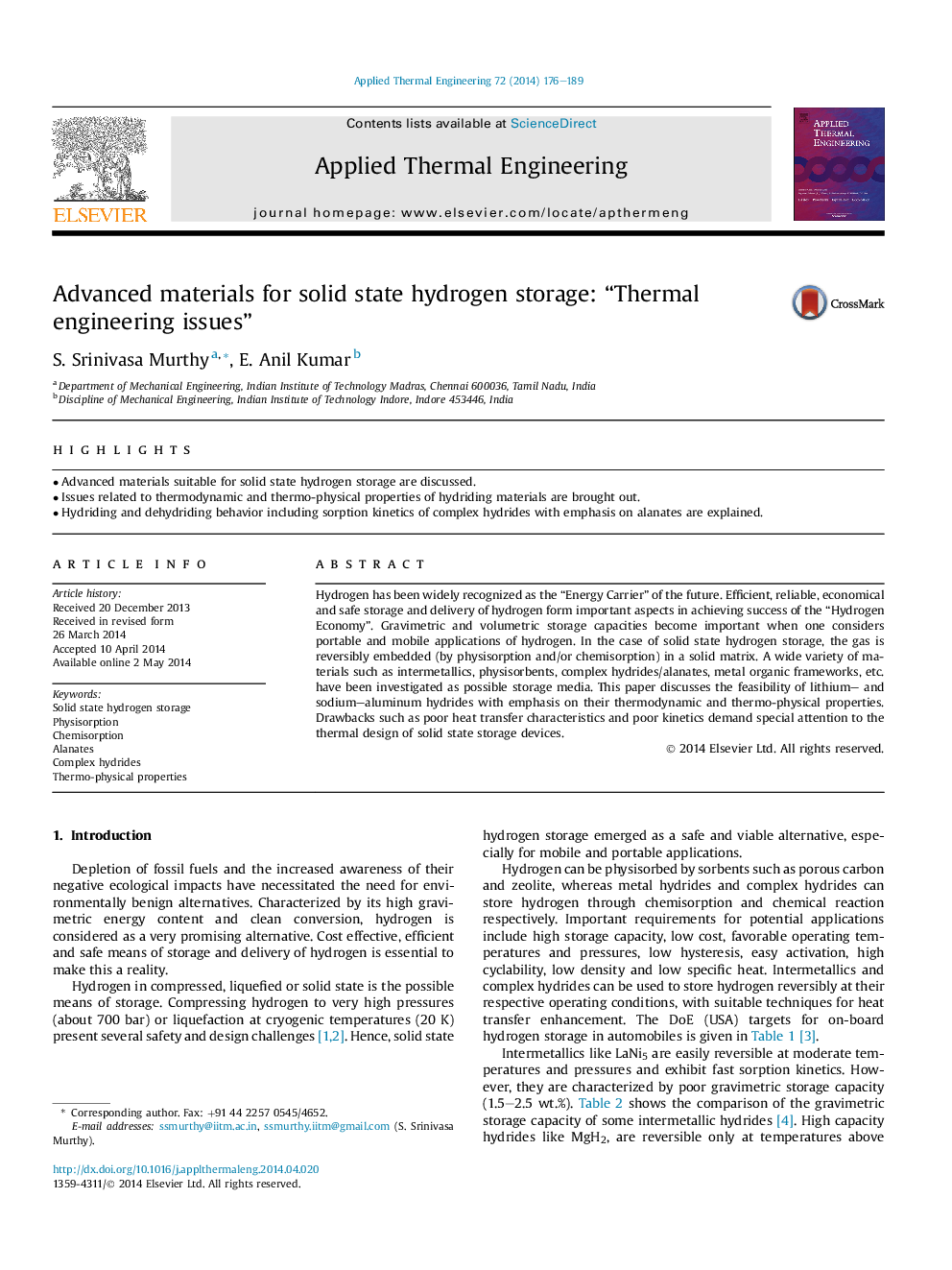| Article ID | Journal | Published Year | Pages | File Type |
|---|---|---|---|---|
| 646038 | Applied Thermal Engineering | 2014 | 14 Pages |
•Advanced materials suitable for solid state hydrogen storage are discussed.•Issues related to thermodynamic and thermo-physical properties of hydriding materials are brought out.•Hydriding and dehydriding behavior including sorption kinetics of complex hydrides with emphasis on alanates are explained.
Hydrogen has been widely recognized as the “Energy Carrier” of the future. Efficient, reliable, economical and safe storage and delivery of hydrogen form important aspects in achieving success of the “Hydrogen Economy”. Gravimetric and volumetric storage capacities become important when one considers portable and mobile applications of hydrogen. In the case of solid state hydrogen storage, the gas is reversibly embedded (by physisorption and/or chemisorption) in a solid matrix. A wide variety of materials such as intermetallics, physisorbents, complex hydrides/alanates, metal organic frameworks, etc. have been investigated as possible storage media. This paper discusses the feasibility of lithium– and sodium–aluminum hydrides with emphasis on their thermodynamic and thermo-physical properties. Drawbacks such as poor heat transfer characteristics and poor kinetics demand special attention to the thermal design of solid state storage devices.
